The Moscow School of Social and Economic Sciences is a Russian-British university founded by the outstanding sociologist Teodor Shanin. For over 25 years we have been preparing successful professionals engaged in social and political sciences, cultural and media management, history. Our training programs have been validated by the University of Manchester. Our graduates get a Master of Arts diploma (University of Manchester, UK).
Master Degree programs in MSSES is a chance to change your career path and become a part of the international community of professionals.
Master Degree Programs
-
MA in Counselling (University of Manchester, UK)
Shaninka was a sharp turn in my life. I have always wanted to get an international education, but I was unable to get it earlier because I did not want to relocate to another country. Shaninka provided an incredible opportunity to study in the UK without leaving Moscow. It was difficult to learn to realize that there are no absolute truths, everything should be challenged and you should learn how to argue and defend your opinion. This striking difference sets Shaninka apart from other Russian universities.
Shaninka help me realize that I could add value as a scientific researcher, although I had always doubted this before. And this is an incredible sense of self-worth - when you understand that you have something to say, and you are heard, understood and supported.
I think that Shaninka provides you with a whole bunch of skills to conduct discussions and defend one's point of view, teaches you not to escape from “no-go areas” - they simply do not exist here. And they are always ready to help you - just ask for help.

Shaninka lecturers are prominent researchers and experts
Our lecturers are researchers who actively implement their own projects; they are a part of the international academic community: they have publications in international journals; they are PhD degree holders and completed their internships at foreign universities. A good professor is an active researcher indeed, and a good researcher always discusses his/her current projects with his/her students.We teach our students that justice is a science and that there is a scientific way to deliver rightful decisions.
The second category of the Shaninka lecturers are Russian and foreign professionals who have significant practical experience. They deliver practical disciplines and share their own case studies and ongoing projects with students.
I try not to teach people, I bring up issues and we jointly seek answers to them in academic papers and court decisions, we compare which position is most justified. As a result, students learn on their own.
In Shaninka, some of the courses are regularly delivered by foreign experts and professors from the USA, Great Britain, Italy, and Holland.
When I share my experience of studying at Shaninka with my friends, the first thing I always talk about is people. I met wonderful friends and acquaintances in Shaninka: people who are curious, and it is not easy to find like-minded people. And I am not only talking about my group mates and fellow students, I still keep in touch with the Shaninka lecturers and I am very happy about it; now we communicate as “former student / almost colleague - lecturer. And it is extremely interesting.
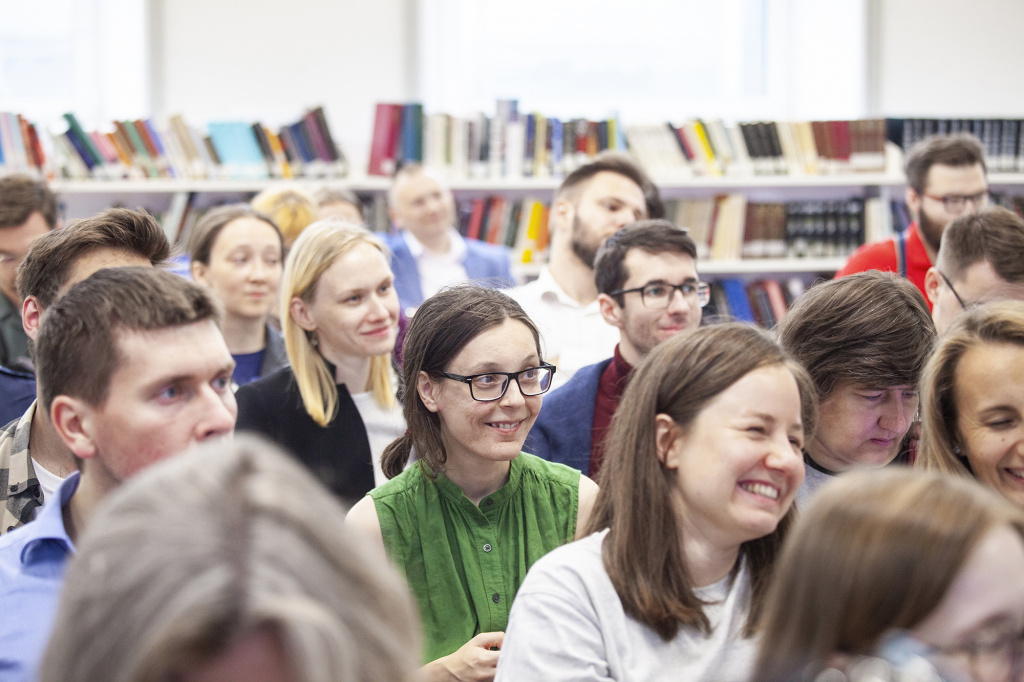
Flexible Programs
All Master Degree programs have some compulsory courses, and students may extend the program by choosing other courses from a long list. This helps students to customize their programs to fit their professional and academic interests.The decision I made in the spring of 2016 to enter Shaninka and apply to the Public History program was one of the most successful in my life. The result of two years spent in Shaninka’s walls both a successfully defended the dissertation and a UK university degree, and also an invaluable life experience: I have read dozens of monographs and articles, made dozens of nice contacts and created a solid network of intellectual communication, found like-minded peers, namely the Ukrainian studies; schools, conferences, seminars, and laboratories in Russia, Ukraine, Germany, Poland and applicable new research horizons.
Convenient Evening Classes
The Shaninka Master Degree programs are delivered in the evenings on weekdays and on Saturdays from 7 pm to 10 pm. This allows many students to combine their studies with work.
The English Language
Students are divided into groups of 12-16 people according to their language proficiency level. The English language program is designed for 112 academic hours and consists of two comprehensive programs: “English for General Academic Purposes” and “English for Specific Academic Purposes”. Intensive speaking and writing practice in English embraces the study of academic writing standards. Students can optionally write their academic essays and dissertations in English. Our graduates are able to effectively communicate in English in professional contexts.International Internships
Students studying at the Shaninka Master Degree programs take part in international internships in Manchester, Salford, Coventry, Maastricht, Riga. During the internships, they attend training courses at universities, meet international researchers and experts, and also collect material for their Master's Degree graduation papers.I took part in wonderful internships. I was lucky to study in England (Manchester) and Latvia (Riga). These trips and studies at European universities expanded my boundaries and made me look at many things from a different perspective. And of course, I made a lot of new friends in other countries.
Two diplomas and a European academic degree
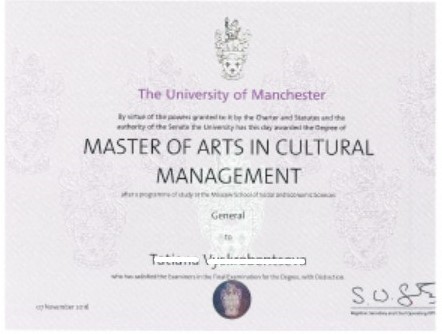
Graduates of the Master Degree programs receive two degrees - a UK Master Degree from the University of Manchester and a Russian Master Degree diploma.
A UK diploma allows you to proceed with your international academic career and apply to PhD programs. Also, it is recognized in major companies and ensures your continued career development. Our students share their experience and state that already during the training they get promoted or find a new job in a higher position.
A UK diploma allows you to proceed with your international academic career and apply to PhD programs. Also, it is recognized in major companies and ensures your continued career development. Our students share their experience and state that already during the training they get promoted or find a new job in a higher position.
Shaninka is a turning point in my life, this experience has changed everything: my thinking, my mindset, and self-awareness. I am immensely grateful to Shaninka for everything that happened in my life!
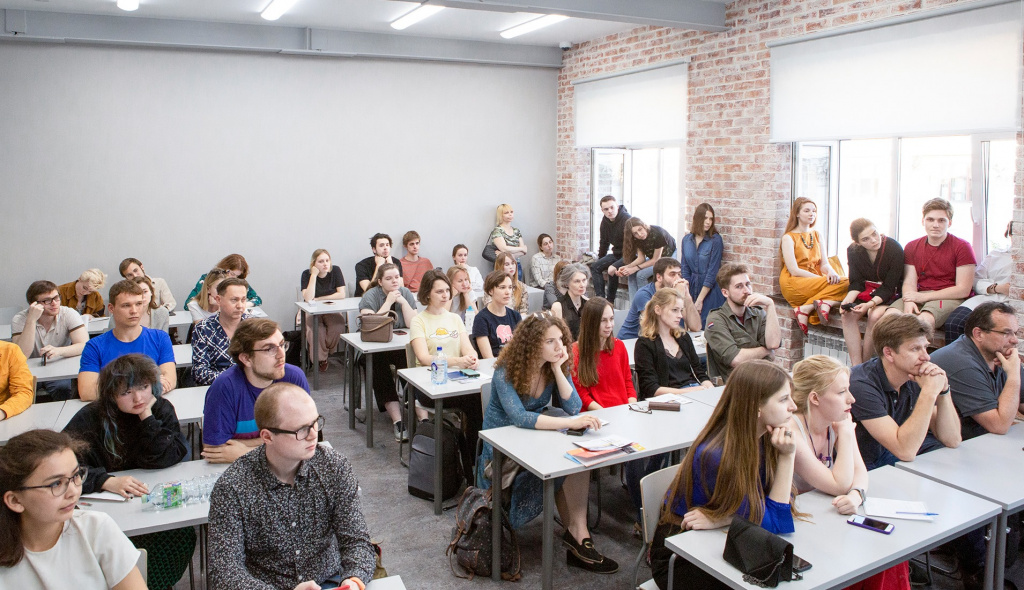
Our Students
Our students are people of different ages and experience, who are united by their willingness for self-development. Here they find a comfortable infrastructure for learning, a friendly working environment, and a community of like-minded people. Many alumni create teams, launch their research and social and cultural projects jointly with peers, open legal and consulting firms.When I entered Shaninka, I had a Ph.D. degree and two higher educations; my colleagues did not really understand my passion to study at the Faculty of Sociocultural Design, but this fact did not stop me.
The faculty (and Shaninka itself) is not only an educational institution as such; it is a powerful community of experts and practitioners who are directly engaged in the development and launch of many programs related to social-cultural development of territories. Thus, as a student, I had an opportunity both to gain some new knowledge and also take part in real design practices. Already during my studies, I was able to raise my expert status, and, plainly, started to earn more by being involved in various projects.
I met interesting people, and most of them are like-minded; I found new friends and an interesting area for social and business projects - training programs for senior citizens.
Shaninka is a community of masters. These words were said by Teodor Shanin at the graduation ceremony. And they indelibly imprinted in my memory. I came to Shaninka to receive knowledge that would help me save the Volga. I discovered a new, yet already accepted worldwide approach to green design and sustainable development. Now I continue exploring this topic in my academic work as a graduate student and discussing it in public discourse.

Alumni Career Paths
The career growth of many students and graduates is obvious: both vertical and horizontal, the change in the professional status of the program students. Shaninka's alumni are famous researchers, heads of major charity organizations, heads of cultural institutions, regional ministers of education and culture, founders of commercial and non-profit companies.Shaninka is a unique intellectual challenge that has shaped a passion for complex analytical constructs and research skills.

Library
The library is available for our students; it is a nice space suitable for both intensive individual studies and for live communication with peers. It is equipped with everything you need for your work: computers, printers, Wi-Fi, comfortable tables and chairs, meeting rooms.The library collection embraces the best books on any discipline taught in the MSSES and general human knowledge in English and Russian. The collection of books is regularly updated: books for the library are carefully selected by deans of faculties and heads of training programs to address requests made by lecturers and students and also to follow current trends. All books are freely available in the library reading space.
It is an outstanding library, which has everything in it and even special vibes making this place comfortable just to walk around. These features create a very inspiring learning environment which stays with you for many years after graduation. Shaninka helped me to get some knowledge or work techniques, and shaped my philosophy and vision regarding my profession and work.

Forms of Studies
In Shaninka, training is delivered in small groups of 15-20 people.Shaninka applies the UK approach to the educational process: the major time students spend working independently rather than attending lectures and seminars. Lecturers act as leaders who guide learning process, they provide the necessary foundation for understanding the literature and help students develop their own research projects.
What Shaninka, its lecturers and their courses they taught me is that no one will do any work for me and will not study for me and I have to do a lot on my own. But, on the other hand, any idea has the right to exist, to be supported and further developed. Even if it seems to be the weirdest, ridiculous, and not very professional. Our lecturers help us elaborate it so that it becomes possible to present it as a good and valuable project.
At Shaninka, we have a nice system of feedback which helps students monitor the quality and content of the training courses.
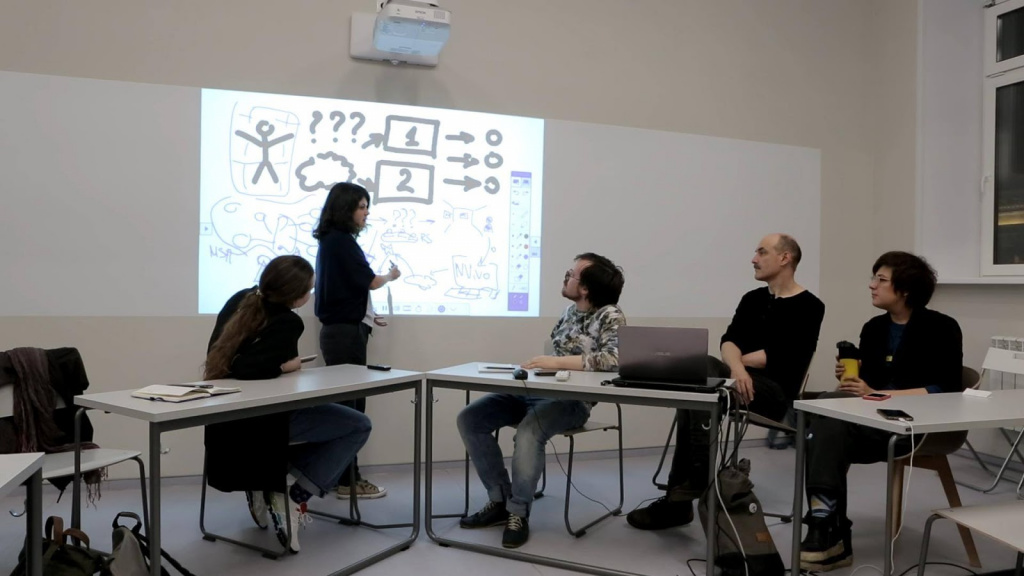
Focus on Writing Skills
Our graduates choose various career options, but the job always requires them to articulate their thoughts clearly and uprightly in writing. We analyze the internal structure of texts, writing techniques and principles, and in terms of reporting procedure - upon completion of each course students submit an original research paper.I teach them to talk to the dead people. My goal is to make the classics of our science become our interlocutors. Rather than zombies that eat our students’ brains, not dusty stuffed jack straws, but dialogue partners.
Yet, the main thing in Shaninka is, of course, the feeling of being a part of an academic community. Introduction to the family of “colleagues” and common goals related to working with theoretical texts. Until now, I have not yet met an institution where one could study this insightful approach to theoretical work and share this approach with others.
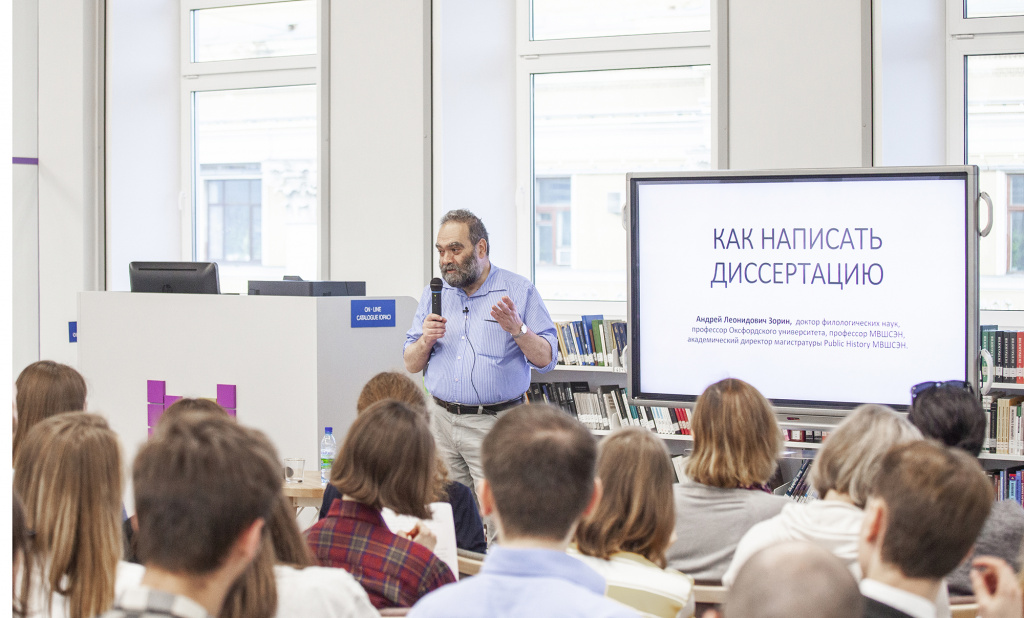
Essays and Dissertations
Upon completion of each course students shall submit an academic essay. An essay in English practice is an independent author's academic text, which is based on sufficient resources, primarily in English. Ideally, this should be a scientific article ready to be published in an academic journal. Students select topics on relevant subjects taught during the course, based on their own interests; then they coordinate the topics with the lecturer.At the end of the training program, all students write dissertations. They choose the topic based on their interests and career plans. The dissertation synopsis is preliminary discussed at a general meeting of lecturers and students. Unlike the usual practice in Russia, this discussion is lively and informal, yet at the same time it is a work-related discourse. During these discussions you get a constructive feedback. The purpose of such meetings is to help student write a really valuable text, rather than a formal paper.
The dissertations itself is submitted in writing, there is no oral defense practice. According to the UK standards, students’ graduation papers are double-checked and further evaluated by an external assessor from the University of Manchester. This ensures academic integrity, criticality, and objectivity of the assessment.
This may sound trivial, still the School, first of all, made it possible to find colleagues who became reference points in my academic work, partners in my research team, initiators of new projects and, finally, friends and like-minded people. The program graduates participate in a regular seminar that allows them to continue working with their own texts. The value of the Shaninka education is not limited by the skills it develops: searching and analyzing information sources, writing texts on particular topics, or project management. The School provides an opportunity to acquire a certain way of thinking related to social sciences: to understand how different languages perceive and describe the world, to work with the problems of social sciences sub specie aeternitatis and to argue with the classic authors as if they were alive.
Requirements for Applicants
To apply to the MSSES Master Degree program you must have a diploma of higher education. The first higher education degree may not necessarily correspond to the specialization of the Master Degree program you are applying for.The primary condition for admission is successful passing of the entrance tests: IELTS test and a specialization-related exam. Questions for entrance tests are known beforehand. Prior to the exams, applicants may attend exam consultations.
Studying at Shaninka has become a test for my professional courage: is it possible to start doing something that I have never done, is it possible to study something that no one else is exploring, and succeed in it? The answer is “Yes”. Especially if there are right people around you who demonstrate an example of such courage.


